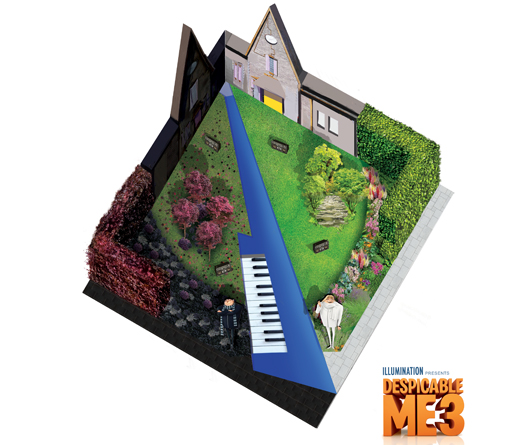Nearly two thirds (62 per cent) of British children want to be taught more about gardening at school, according to research by Homebase based on a survey of 1000 children, compeletd ahead of RHS National Gardening Week. Recent figures from Lantra, the skills council for the land-based industries, suggest that there is a serious skills shortage in the British gardening industry, with 11,000 new entrants needed over the next 10 years in order to survive.
The next generation of British children are keen to fill the gap with almost half (43 per cent), saying they would consider a career in gardening. However, this aspiration is most prevalent among junior school children, with 48 per cent of seven-year olds saying they would consider becoming a gardener when they grow up and 41 per cent saying the garden is their favourite place in the home.
These figures drop dramatically in senior school with just one in four (26 per cent) 12 year olds wanting to pursue gardening careers and 13 per cent naming the garden as their favourite place in the home.
Children in the South West of England are most likely to want to pursue a career in gardening (52 per cent) and those from the North West of England are the least likely (37 per cent).
The interest in gardening among young children is encouraging ahead of this year’s RHS Chelsea Flower Show, where Homebase will be creating a ‘Sowing the seeds of Change’ garden. The garden, in association with Alzheimer’s Society, aims to provide a space which can be enjoyed by the young and old alike, to engage and explore.
Children in the East of England are the most likely to say they are taught about gardening at school (64 per cent), while those in Yorkshire and the South East, including the ‘Garden of England’ in Kent, are least likely (47 per cent).
The good news, says Homebase, is children are getting more serious about gardening, with the majority of seven year olds able to name garden-grown plants and vegetables such as tulip (77 per cent), lavender (70 per cent) and turnips (59 per cent).
Today, less than one in 10 seven year olds (9 per cent) believes that elves live in their gardens, while 66 per cent correctly identified squirrels as being garden-dwellers and 55 per cent knew toads can live in the garden.
Adam Frost, designer of the Homebase show-garden at RHS Chelsea Flower Show, said: “It’s fantastic that kids today are excited by getting outside and discovering all the amazing things about gardens and wildlife.
“However, it’s not surprising that they are gradually switching off as they get older with, it would appear, senior schools failing to prioritise gardening and other creative career paths. Gardening combines both science and design, and schools really should be teaching children about plants and gardens in a cool and hands-on way to ensure they are engaged.
“The aim of my Homebase ‘Sowing the seeds of Change’ garden at Chelsea is to get people of all ages excited about their surroundings and to encourage them to learn about plants and animals in a safe, fun way, no matter how big or small their garden.”
Matthew Compton, trading director garden for Homebase, added: “It’s really encouraging that children today have such a keen interest in getting green-fingered both in terms of finding out more about the great outdoors generally and also pursuing careers in gardening.
“We know that growing your own fruits and vegetables is very much of interest to children and our specific ‘Grow My Own’ range is designed with the young gardener in mind, encouraging them to get outside while improving their skills in a practical way.
“At Homebase we are committed to demonstrating just how rewarding a career in horticulture can be. We offer colleagues City & Guilds training, provide an award-winning Garden Licence qualification and have a team of 20, training with Adam Frost, who will help to build the ‘Sowing the seeds of Change’ garden at the RHS Chelsea Flower Show.”
Research Bods interviewed 1,000 7 to twelve year olds between 22 and 27 March 2013.”
Source: GardenGuide News Room




